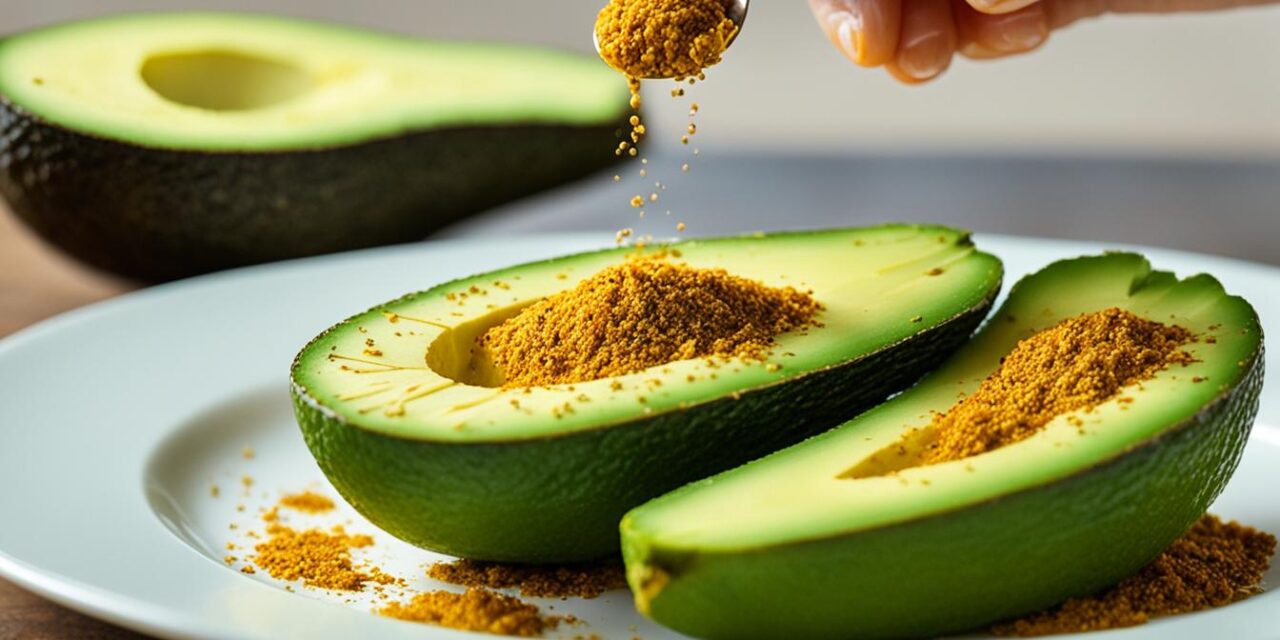Picture this: you’re getting ready for a tropical beach vacation, excited to rock your favorite swimsuit and soak up the sun. But as you slip into your swimsuit, you can’t help but notice a stubborn bulge around your belly that just won’t budge, no matter how hard you’ve tried.
Sound familiar? If you can relate to the frustration of trying to lose belly fat, then you’re not alone. Many people struggle with shedding those extra pounds around their midsection, despite their best efforts. But what if there’s a natural solution that can help melt away that stubborn belly fat?
Well, according to a new study, an ancient spice may hold the key to achieving your weight loss goals. This spice, known for its aromatic and flavorful properties, has been used for centuries in traditional medicine and cooking.
Researchers have discovered that this ancient spice has incredible benefits when it comes to weight loss. Not only does it have the potential to help you melt away fat, but it also offers a range of other health benefits.
So, what is this magical spice? It’s none other than cinnamon.
Key Takeaways:
- Cinnamon, an ancient spice, may hold the key to melting away stubborn belly fat.
- Recent research suggests that cinnamon can aid in weight loss and treating metabolic syndrome.
- Cinnamon helps increase brown fat, improves insulin sensitivity, lowers fasting blood sugar, decreases bad cholesterol and triglycerides, and reduces waist circumference.
- It is safe to consume 1-2 teaspoons of cinnamon powder or 1-inch cinnamon bark per day.
- There are various delicious ways to incorporate cinnamon into your diet for weight loss.
How Cinnamon Works For Weight Loss
You’ve probably heard of cinnamon as a common spice used in delicious recipes like apple pie or cinnamon rolls. But did you know that cinnamon can also play a role in helping you shed those extra pounds? Yes, that’s right! Cinnamon has some remarkable properties that can aid in weight loss and improve your overall health.
One of the ways cinnamon contributes to weight loss is by inducing the browning of fat. White fat is the kind we usually associate with storing excess calories and leading to weight gain. However, brown fat is different – it can actually burn stored energy to generate heat and maintain body temperature. When you consume cinnamon, it helps turn white fat into brown fat, making it easier for your body to use it as energy.
But that’s not all cinnamon does for weight loss. This powerful spice also improves insulin sensitivity, which is crucial for regulating blood sugar levels. By enhancing insulin sensitivity, cinnamon helps your body efficiently process glucose, which can prevent spikes in blood sugar and reduce the risk of storing excess fat.
In addition, cinnamon has been found to lower fasting blood sugar levels and reduce bad cholesterol (LDL) and triglycerides – all of which are important factors for maintaining a healthy weight. By reducing these risk factors, cinnamon can help prevent the accumulation of belly fat and decrease waist circumference.
| Cinnamon Benefits for Weight Loss |
|---|
| Induces browning of fat |
| Improves insulin sensitivity |
| Lowers fasting blood sugar |
| Reduces bad cholesterol and triglycerides |
| Decreases waist circumference |
So, how can you incorporate cinnamon into your diet to reap these weight loss benefits? There are numerous ways to enjoy cinnamon, from adding it to your morning oatmeal or smoothie to sprinkling it on roasted vegetables for a flavorful twist. You can even try making cinnamon-infused detox water or sipping on a cup of warm cinnamon and honey tea.
Remember, while cinnamon can be a valuable addition to your weight loss journey, it’s essential to consult with a healthcare provider to ensure proper dosage and personalized advice. Embrace the power of cinnamon and give your weight loss efforts a delicious boost!
Cinnamon Induces Browning Of Fat
Cinnamon extract is not only a flavorful spice but also a powerful tool in promoting weight loss. One of its key mechanisms is its ability to induce the browning of fat, particularly in subcutaneous fat cells. While white fat stores energy and contributes to weight gain, brown fat is considered “good fat” as it helps convert food into usable energy and generates heat to keep the body warm.
When you consume cinnamon, it may trigger the transformation of white fat, including stubborn belly fat, into metabolically active brown fat. This process not only aids in weight loss but also helps improve overall metabolic health.
“Cinnamon has the unique ability to promote the conversion of white fat to brown fat, which can boost your weight loss efforts and enhance your body’s energy expenditure.”
The browning of fat is a fascinating phenomenon that has caught the interest of researchers in the field of obesity and weight management. By incorporating cinnamon into your diet, you may be able to tap into the benefits of brown fat, ultimately helping you achieve your weight loss goals.
So, how can you include cinnamon in your daily routine to maximize its potential for fat browning? Here are a few ideas:
- Add a teaspoon of ground cinnamon to your morning coffee or tea
- Sprinkle cinnamon on your oatmeal or yogurt for a tasty and nutritious breakfast
- Mix cinnamon with almond butter or Greek yogurt for a delicious and healthy dip
- Incorporate cinnamon into your baking recipes for a flavorful twist
Remember, while cinnamon can be a valuable tool for weight loss, it is important to maintain a balanced diet and active lifestyle. Consulting with a healthcare professional or registered dietitian can provide personalized advice and ensure that cinnamon is integrated safely into your weight loss journey.
Cinnamon Improves Insulin Sensitivity
Did you know that cinnamon not only adds a delightful flavor to your dishes but also offers numerous health benefits? One of its notable effects is its ability to improve insulin sensitivity, which plays a crucial role in regulating blood glucose levels.
The polyphenols found in cinnamon have been shown to enhance insulin sensitivity, making your body respond more effectively to the hormone. This can be particularly beneficial for individuals with conditions like polycystic ovarian disease, where insulin resistance is commonly observed.
Different varieties of cinnamon contain varying levels of polyphenols, with Chinese cinnamon and Indonesian cinnamon boasting the highest content. So, when shopping for cinnamon, keep an eye out for these two varieties to maximize the insulin-sensitizing effects.
Try incorporating cinnamon into your diet to reap the benefits it offers. Sprinkle it in your morning oatmeal, add it to your smoothies, or even experiment with savory dishes that could benefit from a hint of warmth and sweetness.
“Cinnamon’s ability to improve insulin sensitivity can have a significant impact on managing blood glucose levels and overall health.”
Remember, when it comes to using cinnamon for its health benefits, moderation is key. Stick to a moderate daily consumption of around 1-2 teaspoons of cinnamon powder or 1-inch cinnamon bark. If you have any underlying health conditions or are taking medications, it’s always a good idea to consult with your healthcare provider before making any significant changes to your diet.
To give you a better understanding of cinnamon’s potential impact on insulin sensitivity, take a look at the table below:
| Cinnamon Variety | Polyphenol Content |
|---|---|
| Chinese cinnamon | High |
| Indonesian cinnamon | High |
| Ceylon cinnamon | Moderate |
| Vietnamese cinnamon | Moderate |
| Korintje cinnamon | Low |
As you can see, Chinese and Indonesian cinnamon varieties offer the highest polyphenol content, enhancing their potential to improve insulin sensitivity.
Incorporating cinnamon into your routine can be a flavorful and easy way to support your insulin sensitivity. So, go ahead and sprinkle some cinnamon magic into your meals and experience the benefits for yourself!
Cinnamon Lowers Fasting Blood Sugar
When it comes to managing your blood sugar levels, cinnamon can be a powerful ally. Studies have shown that consuming cinnamon or cinnamon extract can effectively lower fasting blood glucose levels, making it particularly beneficial for individuals with type 2 diabetes. This humble spice can also help increase insulin sensitivity, allowing your body to better regulate blood sugar levels and reduce the risk of complications.
However, it’s important to note that the dosage and usage of cinnamon for blood sugar management should be discussed with a healthcare professional. They can provide personalized advice and ensure that cinnamon is integrated into your diet safely and effectively.
| Benefits of Cinnamon for Fasting Blood Sugar | How to Incorporate Cinnamon into Your Diet |
|---|---|
|
|
Cinnamon Lowers Bad Cholesterol And Triglycerides
Not only is cinnamon a delightful spice that adds warmth and flavor to your dishes, but it can also have a positive impact on your heart health. Research has shown that cinnamon can help lower LDL cholesterol, fasting blood glucose, and triglyceride levels, which are all key indicators of cardiovascular health.
LDL cholesterol, also known as “bad” cholesterol, is a type of cholesterol that can build up in your arteries and increase the risk of heart disease. High levels of LDL cholesterol can lead to the formation of plaques that narrow the arteries and restrict blood flow.
On the other hand, triglycerides are a type of fat found in your blood that can also contribute to heart disease when elevated. High levels of triglycerides are often associated with unhealthy lifestyle choices, such as a high-fat diet, excessive alcohol consumption, and sedentary behavior.
By incorporating cinnamon into your diet, you can help prevent the accumulation of bad cholesterol in your arteries and reduce your risk of heart attack and stroke. Additionally, cinnamon’s ability to lower fasting blood glucose levels can further contribute to maintaining a healthy cardiovascular system.
To experience the heart-healthy benefits of cinnamon, try incorporating it into your meals and beverages. Sprinkle cinnamon on your morning oatmeal, add it to your favorite smoothie recipe, or use it as a flavorful spice in your baking. By making cinnamon a regular part of your diet, you can take proactive steps towards maintaining a healthy heart.
| Benefits of Cinnamon for Heart Health | |
|---|---|
| Lowers LDL cholesterol levels | Reduces the risk of heart disease |
| Decreases fasting blood glucose | Improves insulin sensitivity |
| Reduces triglyceride levels | Promotes a healthy cardiovascular system |
Conclusion
Cinnamon, the ancient spice with its incredible health benefits and surprising weight loss properties, has proven to be a valuable addition to your diet. Not only does it help in the browning of fat, but it also improves insulin sensitivity, lowers fasting blood sugar, reduces bad cholesterol and triglycerides, and even decreases waist circumference. With all these advantages, incorporating cinnamon into your daily routine can certainly work wonders for your overall well-being.
But how can you enjoy the benefits of cinnamon? Luckily, there are countless recipes and preparations that allow you to savor this spice while reaping the rewards. Whether it’s a warm cup of cinnamon and honey tea, a refreshing glass of cinnamon fat burner detox water, or a nutritious bowl of cinnamon-spiced oats for breakfast, the options are endless.
However, it’s important to remember that cinnamon, like any other supplement, should be used in moderation and with caution. To ensure proper dosage and personalized advice, it is recommended to consult a healthcare provider. They will guide you based on your individual needs and health conditions, ensuring you achieve the maximum benefits while staying safe.
FAQ
Can cinnamon really melt away stubborn belly fat?
How does cinnamon work for weight loss?
Does cinnamon induce the browning of fat?
How does cinnamon improve insulin sensitivity?
Can cinnamon lower fasting blood sugar?
Does cinnamon lower bad cholesterol and triglycerides?
Conclusion
MORE SOURCES TO READ:
- https://www.stylecraze.com/articles/cinnamon-for-weight-loss/
- https://health.usnews.com/wellness/fitness/articles/best-ways-to-get-rid-of-belly-fat
![]()














Recent Comments